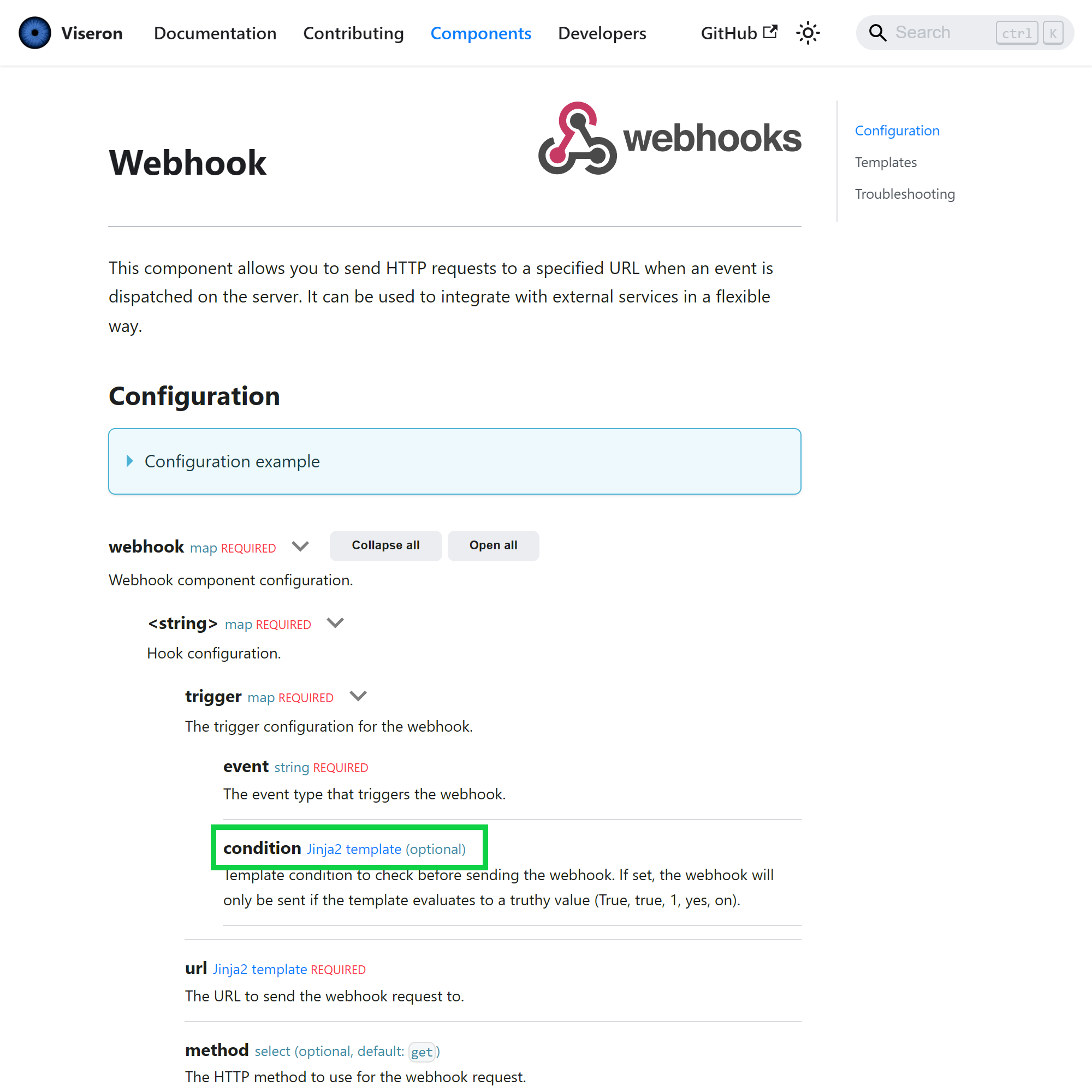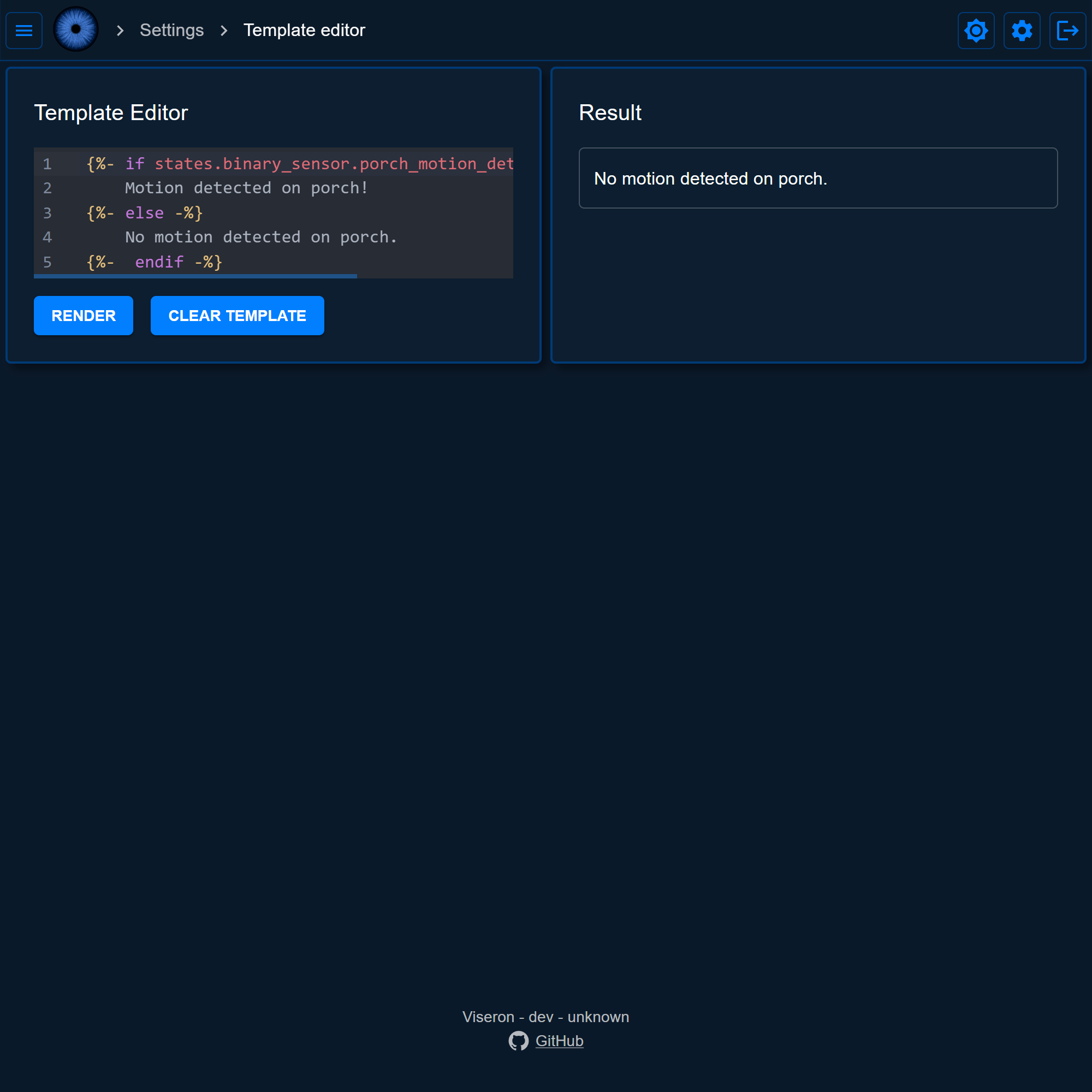Templating
Templating in Viseron is backed by Jinja2, a powerful templating engine for Python. It allows you to create dynamic templates that can be used in the config, currently only the webhook component leverages this functionality.
Templating in Viseron
To know if a config option supports templating, check for the Jinja2 template tag in the component documentation.
Jinja2 template tag screenshot
The syntax for Jinja2 is described in their documentation and is not covered here.
Viseron provides some additional context variables that can be used in templates:
states: A dictionary of all the current states of all Entities in Viseron.event: The event data that triggered the component. This is only available for components that are triggered by events, such as the webhook component.
Template editor
A template editor (heavily inspired by Home Assistant) is available that allows you to test your templates before using them in your configuration. You can access it from the Settings > Template Editor page in the web interface.
Template editor screenshot
Examples
Using the event context variable
When using the webhook component, you can access the event data that triggered the webhook. For example, if you want to include the camera identifier in the payload, you can use:
webhook:
my_webhook:
trigger:
event: camera_one/motion_detected
url: http://example.com/webhook
payload: >
{%- if event.motion_detected -%}
"Motion detected on {{ event.camera_identifier }}!"
{%- else -%}
"No motion detected on {{ event.camera_identifier }}."
{%- endif -%}
Using the states context variable
You can also use the states context variable to access the current state of all Entities. For example, if you want to include a camera's recording state in the payload, you can use:
webhook:
my_webhook:
trigger:
event: camera_one/motion_detected
url: http://example.com/webhook
payload: "Recording state: {{ states.camera_one_recorder.state }}"
Conditions
Some components allow you to use template conditions to determine whether an action should be taken based on the template. The condition checks whether the template produces a value that evaluates to true.
Values that evaluate to true include:
- Boolean true
- Non zero numbers (e.g., 1, 2, 3, etc.)
- The strings
true,yes,on,enable(case-insensitive)
Any other value results in a false evaluation.
This example checks if the motion_detected attribute of the event is true before triggering the webhook:
webhook:
my_webhook:
trigger:
event: camera_one/motion_detected
condition: >
{{ event.motion_detected }}
url: http://example.com/webhook
payload: "Motion detected on {{ event.camera_identifier }}"

